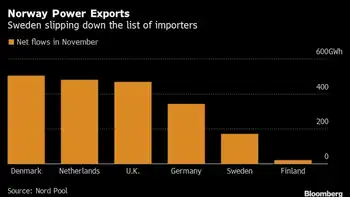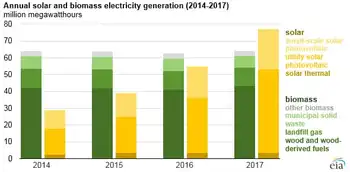Ontario Sets Electricity Rates at Off-Peak Price until February 7

Protective Relay Training - Basic
Our customized live online or in‑person group training can be delivered to your staff at your location.

- Live Online
- 12 hours Instructor-led
- Group Training Available
Ontario Off-Peak Electricity Rate offers 8.2 cents per kWh for 24 hours, supporting Time-of-Use and Tiered Regulated Price Plan customers, including residential, small business, and farms, under Ontario Energy Board guidelines during temporary relief.
Key Points
A temporary 8.2 cents per kWh all-day price for RPP customers, covering TOU and Tiered users across Ontario.
✅ Applies 24 hours daily at 8.2 cents per kWh for 21 days
✅ Covers residential, small business, and farm RPP customers
✅ Valid for TOU and Tiered plans set by the Ontario Energy Board
The Ontario government has announced electricity relief with electricity prices set at the off-peak price of 8.2 cents per kilowatt-hour, 24 hours per day for 21 days starting January 18, 2022, until the end of day February 7, 2022, for all Regulated Price Plan customers. The off-peak rate will apply automatically to residential, small businesses and farms who pay Time-of-Use or Tiered prices set by the Ontario Energy Board.
This rate relief includes extended off-peak rates to support small businesses, as well as workers and families spending more time at home while the province is in Modified Step Two of the Roadmap to Reopen.
As part of our mandate, we set the rates that your utility charges for the electricity you use in your home or small business. These rates appear on the Electricity line of your bill, and we administer protections such as disconnection moratoriums for residential customers. We also set the Delivery rates that cover the cost to deliver electricity to most residential and small business customers.
Types of electricity rates
For residential and small business customers that buy electricity from their utility, there are two different types of rates (also called prices here), and Ontario also provides stable electricity pricing for larger users. The Ontario Energy Board sets both once a year on November 1:
Time-of-Use (TOU)
With TOU prices, the price depends on when you use electricity, including options like ultra-low overnight pricing that encourage off-peak use.
There are three TOU price periods:
- Off-peak, when demand for electricity is lowest and new offerings like the Ultra-Low Overnight plan can encourage shifting usage. Ontario households use most of their electricity – nearly two thirds of it – during off-peak hours.
- Mid-peak, when demand for electricity is moderate. These periods are during the daytime, but not the busiest times of day, and utilities like BC Hydro are exploring similar TOU structures as well.
- On-peak, when demand for electricity is generally higher. These are the busier times of day – generally when people are cooking, starting up their computers and running heaters or air conditioners.











